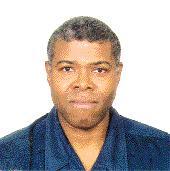
Garth Rattray
My mother turned 80 years old last week Wednesday (July 26). I thought that nothing could dampen our spirits. We had planned a regular little gathering of the immediate family to celebrate her milestone. We had also secretly planned a surprise party at one of our nicer Kingston hotels for the weekend. I was brimming with pride and inwardly overflowing with gratitude to God for being blessed with such a mother and for having her around all this time. However, my feeling of exhilaration was somewhat undermined by the news of the passing of Dr. the Honourable Louise Bennett-Coverley.
Many will come forward to read her famous biography. They will tell of her birth on September 7, 1919. They will tell of her years learning and honing her thespian and performing arts skills, of her stage partner, Ranny Williams, of her marriage to Eric 'Chalk Talk' Coverley and of her life in the National Pantomime. They will praise her genius, list her numerous achievements and recite her many creations. They will tell of her appointment as a Member of the Order of Merit, of her honorary degrees, accolades and of her influence on just abut every serious cultural performer.
She has been described as, a cultural icon, a Jamaican poet and activist, Jamaica's leading comedienne, folklorist, a writer, an artiste, Jamaica's leading lady of poetry and performance, a pioneer in the use of Jamaican Creole, a major force in the storytelling renaissance in the West Indies and Canada, a renowned dramatist and as Jamaica's Ambassador of Culture.
Ethnic transition
What interested me most of all about Miss Lou was that she was the very embodiment of Jamaican culture. She was the beacon that guided us towards what a uniquely Jamaican culture should be. As a British colony, we were acculturated to aspire towards their cultural ideals. During the ethnic transition of the 1960s and early 1970s (brought on by Independence), we were at risk of becoming culturally blighted. Had this occurred, we would be devoid of any appreciation of self and degenerated into a cultureless society.
Our proximity to the United States of America whetted our appetites for first-world excesses and mundane capitalistic aspirations but provided no tangible means of achieving any of them. Poverty and a chronic lack of opportunities transformed us into a nation with a highly-developed craving for almost any culture other than our own. Miss Lou provided a cultural harbour for Jamaicans. She became our anchor when the shifting tides of politics and the storms of crime and violence threatened to destroy the soul of our nation.
More people like Miss Lou
I believe that Miss Lou dreamed of a Jamaica where every schoolgirl and boy would master proper (Jamaican) English but use our dialect if and when applicable. She probably dreamed of innocent children unexposed to carnality, illicit drugs, sexual abuse or violence, playing ring games and interacting peacefully with one another. Perhaps if we had more people like Miss Lou, our country would truly be the paradise it is advertised to be.
Others have tried to emulate her, but there can only be one Miss Lou. Although she resided abroad in her later years, her essence was always and will always be with us. Now that she has passed beyond the boundaries of time and space, she will live on forever in our hearts and minds.
Dr. Garth A. Rattray is a medical doctor with a family practice.

